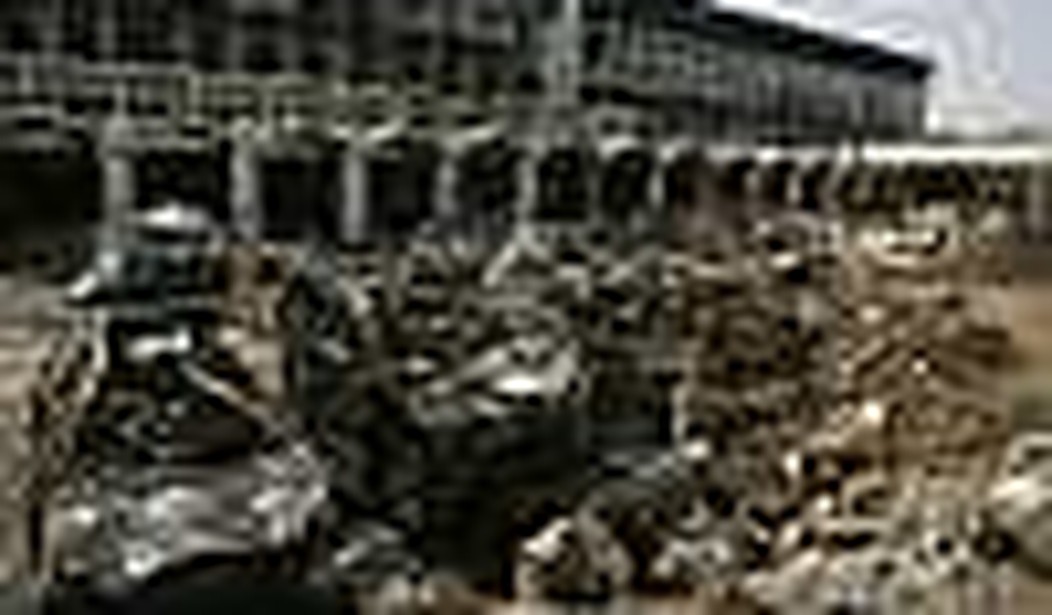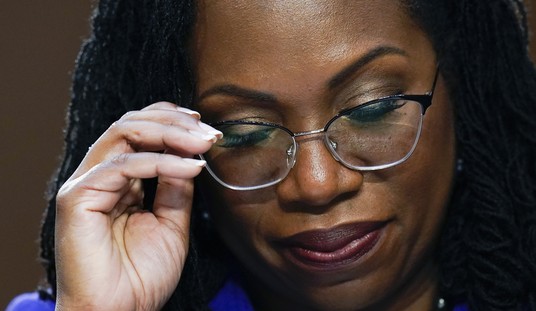If the past three debates have shown us anything, it’s that there’s a disturbingly shallow grasp of that powder keg known as Pakistan.
The question posed by audience member Katie Hamm at Tuesday’s townhall debate seemed simple enough: “Should the United States respect Pakistani sovereignty and not pursue al-Qaeda terrorists who maintain bases there, or should we ignore their borders and pursue our enemies like we did in Cambodia during the Vietnam War?” It was loaded with anti-war nuance, but interestingly enough was clearly aimed at the Democrat, Barack Obama, instead of the Republican. “If we have actionable intelligence about high-value terrorist targets and President Musharraf won’t act, we will,” Obama said on the stump more than a year ago, igniting a campaign season worth of sound-bite fodder.
And what a year it’s been: the assassination of Benazir Bhutto, power struggle between the victorious opposition, no more Pervez in Pakistan, the election of Benazir’s widower (who seems to enjoy spending more time macking on Sarah Palin than fighting terrorism) as president, and the suicide bombing of the Marriott in Islamabad just hours after Asif Ali Zardari made his first speech as president to the parliament on Sept. 20.
But back to Barack’s debate answer:
Katie, it’s a terrific question and we have a difficult situation in Pakistan. I believe that part of the reason we have a difficult situation is because we made a bad judgment going into Iraq in the first place when we hadn’t finished the job of hunting down bin Laden and crushing al-Qaeda.
Did someone originally ask about sovereignty? That’s called question avoidance. Does he still think that simply greater troop levels can conquer the rugged Khyber Pass, find every nook and cranny hideaway in the Hindu Kush, and battle every tribal militia and teed-off local called into action because they feel that the Crusaders Part Deux have arrived? If he’s so opposed to the war in Iraq, and is drawing the anti-war vote, does he actually think that Afghanistan is any less of a quagmire?
But I do believe that we have to change our policies with Pakistan. We can’t coddle, as we did, a dictator, give him billions of dollars and then he’s making peace treaties with the Taliban and militants.
What I’ve said is we’re going to encourage democracy in Pakistan, expand our nonmilitary aid to Pakistan so that they have more of a stake in working with us, but insisting that they go after these militants.
John McCain, in response, needled Obama by saying that we should foster cooperation with the Pakistanis and not just attack them. Again, a simplification. But continually bringing up Musharraf when asked about Pakistan shows that Obama is rooted in the past, not an understanding of what’s happening now and what can happen in the future. He repeats that democracy should be encouraged, but that’s how the current leadership got into power. Opposition parties led by Nawaz Sharif and Zardari got the mandate by jointly besting the Pakistan Muslim League-Q in February 2008 National Assembly elections, then they forced Musharraf from power as a tenuous coalition.
Obama also shows short-sightedness by repeating this talking point, which he added when insisting on a follow-up to McCain’s point despite Tom Brokaw’s protestation that it was not within the format to which they’d both agreed:
The reason Pakistan — the popular opinion of America had diminished in Pakistan was because we were supporting a dictator, Musharraf, had given him $10 billion over seven years, and he had suspended civil liberties. We were not promoting democracy. This is the kind of policies that ultimately end up undermining our ability to fight the war on terrorism, and it will change when I’m president.
Again, Obama is not thinking in the present — or rather, he’s thinking with a choking dose of political correctness. The reason that popular opinion of America diminished in Pakistan is because of the sway of Islamist parties such as the MMA (Muttahida Majlis-e-Amal, which lost seats in February but could easily regain footing in a power vacuum between the perpetually bickering Zardari and Sharif) and the anti-West sentiment stoked by omnipresent radical clerics. They, by the way, don’t promote democracy either, but the caliphate — and wouldn’t be swayed by Obama’s “democracy now” project.
But that would take Obama admitting the un-PC reality of the religious element to the Pakistani crisis. In a poll last fall that revealed a 46 percent approval rating for Osama bin Laden among Pakistanis, 66 percent of respondents said that the U.S. was acting out of anti-Muslim motivation in the War on Terror. That’s testament to the power of the clerics and the entrenched Islamist beliefs — particularly in the areas that host training camps and terrorist hideouts.
And — here’s the harsh reality — they were emboldened by the departure of Musharraf, not singing the praises for renewed civil liberties. The bomb targeted the lower floor of restaurants at the Marriott, packed at that hour with Muslims breaking the Ramadan fast. Some of the other dead, such as Czech Ambassador Ivo Zdarek, died in the resulting fire that spread to the rest of the hotel. The intentionally-timed bombing didn’t just target foreigners, and the hotel wasn’t bombed because of lingering anger at Musharraf suspending civil liberties. It was a challenge to the new government, because they know how much weaker things are at the top now.
The rarely interviewed head of Afghanistan’s National Security Directorate, Amrullah Saleh, put it best when al-Jazeera tried to nail him in a “gotcha!” interview at the end of last month. The interviewer waxes about how Pakistan has tried to control the lawless region of Waziristan, and top spy Saleh calmly replies, “When did they try to control it?”
The interviewer rattles off some weak operations that were just conducted for the benefit of the media, but haven’t made any dent in terrorism. Saleh fires back that many operations, such as going after Taliban leadership in Quetta, could be accomplished with a “soft knock” and an arrest — if the Pakistan government had the will. He also notes that if the Pakistan military would actually work “in a full, committed manner” with the Afghans, Osama bin Laden could be caught — no question about it.
So does pressure need to be put on Pakistan? Absolutely. But it’s disconcerting to see so little understanding on the campaign stump regarding just how much of a house of cards that nuclear-empowered country is.
Zardari, it’s safe to say, is no Bhutto. In his first address on Sept. 20, Zardari decried U.S. drone strikes in Pakistani territory, saying, “We will not tolerate the violation of our sovereignty and territorial integrity by any power in the name of combating terrorism.” Hours later, as the Marriott went up in flames, Zardari was on TV pleading for “all democratic forces to come forward and save Pakistan”
He’s certainly not the only politician who wants it both ways.









Join the conversation as a VIP Member